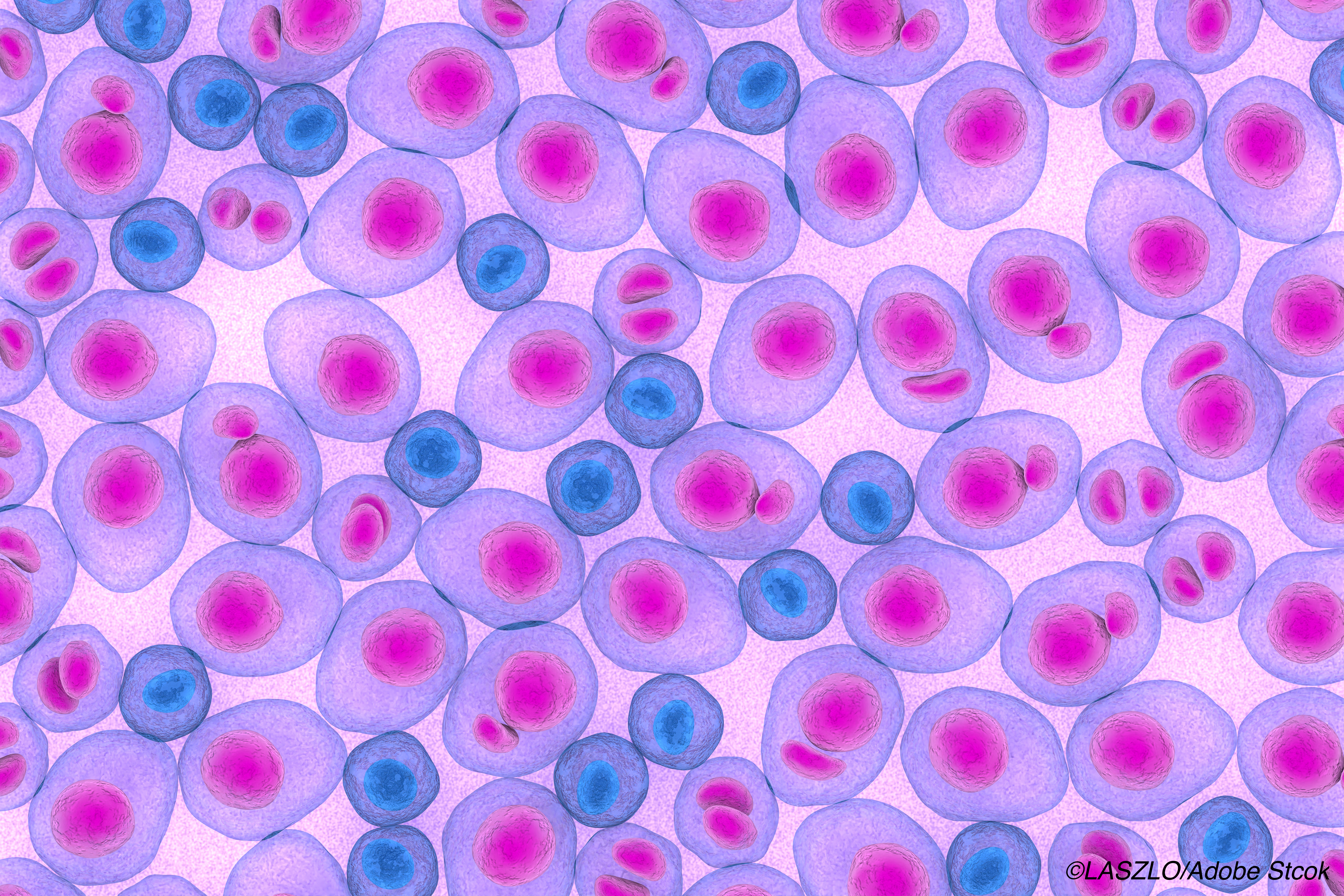WASHINGTON — The FDA approved idecabtagene vicleucel (Abecma), the first cell-based gene therapy for adults with multiple myeloma (MM) that has not responded to at least four prior lines of therapy.
Idecabtagene vicleucel — also known as ide-cel — is a B-cell maturation antigen (BCMA)-directed genetically modified autologous chimeric antigen receptor (CAR) T-cell therapy, the FDA explained. Each dose is customized using the patient’s own T-cells, which are genetically modified before being infused back into the patient.
“While there is no cure for multiple myeloma, the long-term outlook can vary based on the individual’s age and the stage of the condition at the time of diagnosis,” Peter Marks, MD, PhD, director of the FDA’s Center for Biologics Evaluation and Research, said in a statement. “Today’s approval provides a new treatment option for patients who have this uncommon type of cancer.”
This approval was based on results from the phase II KarMMa trial, in which treatment with ide-cel induced responses in 73% of 128 included patients with relapsed or refractory (MM) — and 42 patients (33%) had a complete response or better, Nikhil C. Munshi, MD, Dana-Farber Cancer Institute, Boston, and co-investigators reported in The New England Journal of Medicine.
However, Munshi and colleagues also noted that all 128 patients in the KarMMa trial experienced an adverse event, with 127 experiencing a grade 3 or 4 event. The most common side effects reported included cytokine release syndrome (CRS), infections, fatigue, musculoskeletal pain, and a weakened immune system.
“A total of 44 treated patients (34%) died during the study, with most deaths (27) attributed by the investigator to complications of myeloma progression, Munshi and colleagues wrote. “Three patients (2%) died within 8 weeks after ide-cel infusion from ide-cel–related adverse events (bronchopulmonary aspergillosis, gastrointestinal hemorrhage, and cytokine release syndrome). One patient (1%) died between 8 weeks and 6 months from an ide-cel–related adverse event (cytomegaloviral pneumonia). Five patients (4%) died after 6 months.”
Due to the extremely high adverse event rate, the treatment label for ide-cel includes a boxed warning for CRS, hemophagocytic lymphohistiocytosis/macrophage activation syndrome, neurologic toxicity, and prolonged cytopenia, the FDA explained. In addition, the gene therapy is approved with a risk evaluation and mitigation strategy requiring that hospitals and clinics administering ide-cel are specifically certified and that staff involved in the prescribing, dispensing, or administering of the treatment are trained to recognize and manage CRS, nervous system toxicities, and other side effects. “Also, patients must be informed of the potential serious side effects and of the importance of promptly returning to the treatment site if side effects develop after receiving [ide-cel],” the agency added.
Ide-cel is manufactured by Celgene Corporation, a Bristol Myers Squibb company.
John McKenna, Associate Editor, BreakingMED™
Cat ID: 468
Topic ID: 78,468,730,468,192,725,925




Create Post
Twitter/X Preview
Logout